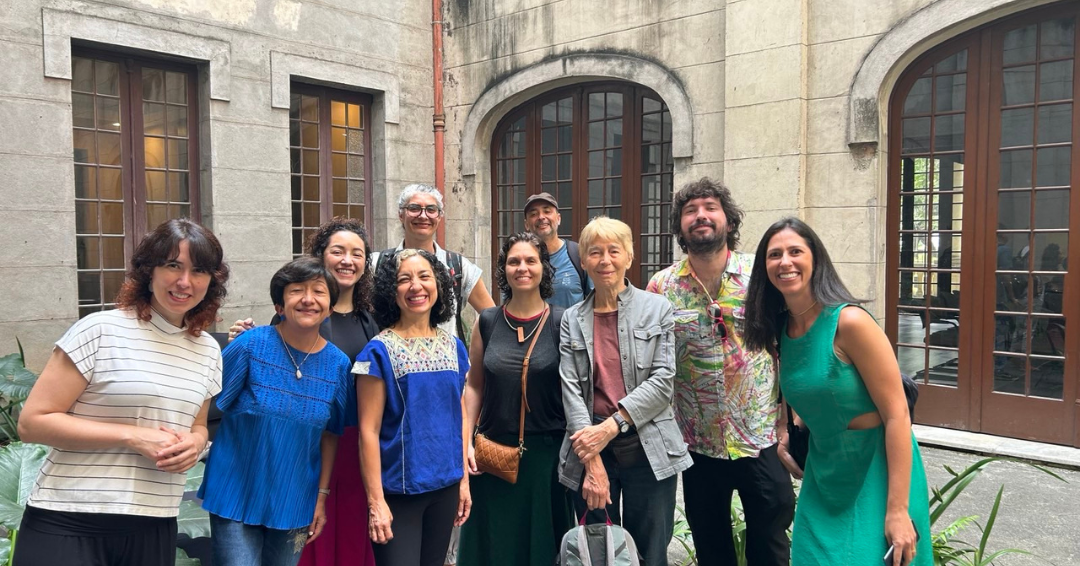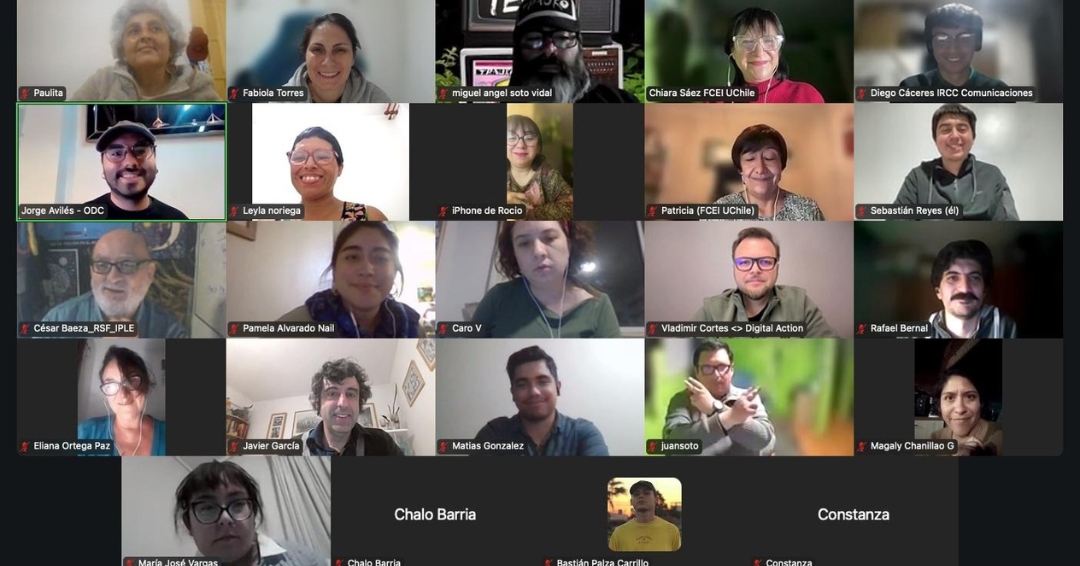Co-researcher and academic Patricia Peña participated in the workshop “Artificial Intelligence, Human Rights and Social Justice: Building Futures from Latin America”, organized by the Culture and Science Forum of the Federal University of Rio de Janeiro (UFRJ) in Brazil.
The event, held from August 21st to 23rd, brought together organizations of the civil society and the academic community to discuss and build collective strategies for the challenges entailed by the use of artificial intelligence in Latin America, both in terms of human rights and communication rights, freedom of expression, social equity and justice.
Organized by Derechos Digitales, the Latin American Network of Surveillance, Technology and Society Studies (LAVITS) ), the Tierra Común network of data colonialism and social justice, the F Feminist Artificial Intelligence Research Network and the MediaLab of UFRJ, the space allowed learning about the positions and work being carried out by organizations such as as UNESCO in measuring readiness in ethical responsibility and AI and the Office of the Special Rapporteur for Freedom of Expression of the Inter-American Commission on Human Rights (IACHR) in its recent report on digital inclusion.

The event also included a review of initiatives such as the Latin American Feminist AI Research Network FLatin American Feminist AI Research Network F, which in the past three years has enabled the research, incubation and development of prototype projects for AI-based solutions with a feminist perspective in the region.

These initiatives include the development of a prototype chatbot system for assisting in cases of digital gender violence and harassment against women in Chile, led by Professor Patricia Peña in collaboration with Fundación Datos Protegidos and the Observatory of Gender Statistics and Diversity (ODEGI).
Additionally, it was possible to learn about the proposal of the Global Index on Responsible AIthat ranks countries based on a series of variables that include regulatory frameworks and public policies, and current forums and global spaces were analyzed in which various dimensions of the social impacts of AI development are discussed, such as work and employment, mass surveillance -smart cities, gender and diversity, intellectual property, personal data protection, education- children and adolescents, etc.
Based on this workshop, the intention is that the network of civil society organizations and the academia can keep pursuing collaboration and partnerships that allow strengthening the debate on AI governance in Latin America, particularly at times when several countries in the region are adopting public policies for the promotion and development of artificial intelligence and regulatory frameworks that do not necessarily have participatory processes to incorporate diverse sectors and social actors, while also fostering discussions about the impact and scopes of the use of these types of technologies in various social and creative areas.


